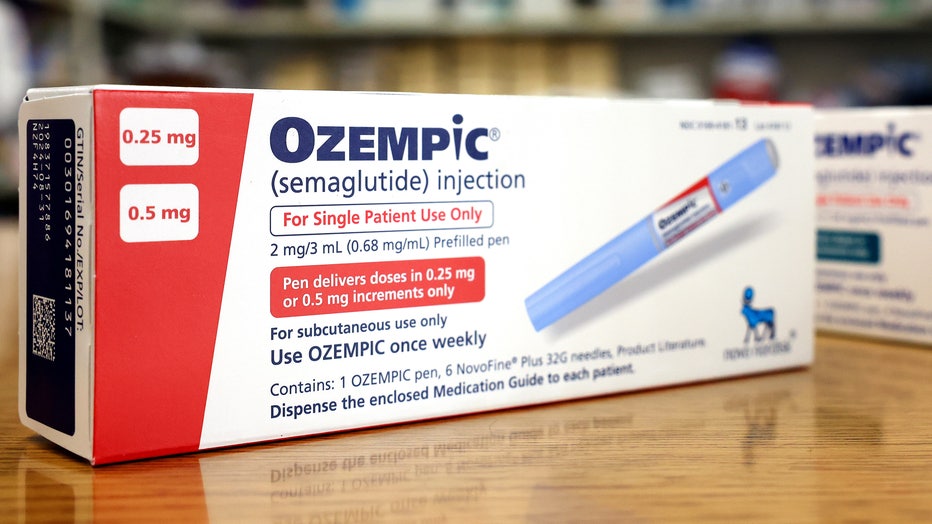Popular weight loss drugs linked to severe stomach problems: 'Critical information for patients'

Jeff Brinker's incredible weight loss journey
Once 540 pounds, Jeff Brinker is now half that weight and feeling better than he's felt in decades. Here's how he did it.
Ozempic, Wegovy and other drugs widely used for weight loss can lead to higher risk of severe gastrointestinal issues, a new study concludes.
Previous studies have already shown that drugs like Wegovy, Ozempic, Rybelsus, Mounjaro and Saxenda carry some risk of digestive problems for diabetes patients, but a new study from researchers at the University of British Columbia is the first large-scale look at adverse gastrointestinal effects in non-diabetic patients using the drugs for weight loss.

Still life of Wegovy an injectable prescription weight loss medicine that has helped people with obesity. (Photo by: Michael Siluk/UCG/Universal Images Group via Getty Images)
"These drugs are becoming increasingly accessible, and it is concerning that, in some cases, people can simply go online and order these kinds of medications when they may not have a full understanding of what could potentially happen. This goes directly against the mantra of informed consent," first author Mohit Sodhi, a graduate of UBC’s experimental medicine program and fourth year UBC medical student, said.
Initially developed for diabetes, sales of semaglutide products, also known GLP-1 agonists, have soared in the past few years after the drugs were shown to spur fast and significant weight loss.
READ MORE: Wagovy, Ozempic patients could face higher risk of complications under anesthesia
They mimic the action of a gut hormone that kicks in after people eat, boosting the release of insulin, blocking sugar production in the liver and suppressing appetite. But researchers found that compared to another weight loss drug, bupropion-naltrexone, GLP-1 agonists were linked to a:
- 9.09 times higher risk of pancreatitis, or inflammation of the pancreas. Pancreatitis symptoms include severe abdominal pain and, in some cases, require hospitalization and surgery.
- 4.22 times higher risk of bowel obstruction, in which food can't pass through the small or large intestine. It causes cramping, bloating, nausea and vomiting. Depending on the severity, surgery may be required.
- 3.67 times higher risk of gastroparesis, or stomach paralysis, which limits the passage of food from the stomach to the small intestine and causes symptoms like vomiting, nausea and abdominal pain.
The study, published in the Journal of the American Medical Association (JAMA), also found an increase in biliary disease, a group of conditions affecting the gall bladder, "but the difference was not found to be statistically significant," the university said.

Boxes of the diabetes drug Ozempic rest on a pharmacy counter on April 17, 2023 in Los Angeles, California. (Photo illustration by Mario Tama/Getty Images)
"Given the wide use of these drugs, these adverse events, although rare, must be considered by patients thinking about using them for weight loss," Sodhi said. "The risk calculus will differ depending on whether a patient is using these drugs for diabetes, obesity or just general weight loss. People who are otherwise healthy may be less willing to accept these potentially serious adverse events."
Although the side effects are rare, researchers say they can be severe, and "with millions around the world using the drugs, it could still lead to hundreds of thousands of people experiencing these conditions."
READ MORE: US employers expect to see biggest jump in healthcare costs in a decade in 2024
They hope drugmakers and regulators like the U.S. Food and Drug Administration will update the warning labels to include risk of gastroparesis.
"This is critical information for patients to know so they can seek timely medical attention and avoid serious consequences," said Sodhi.

